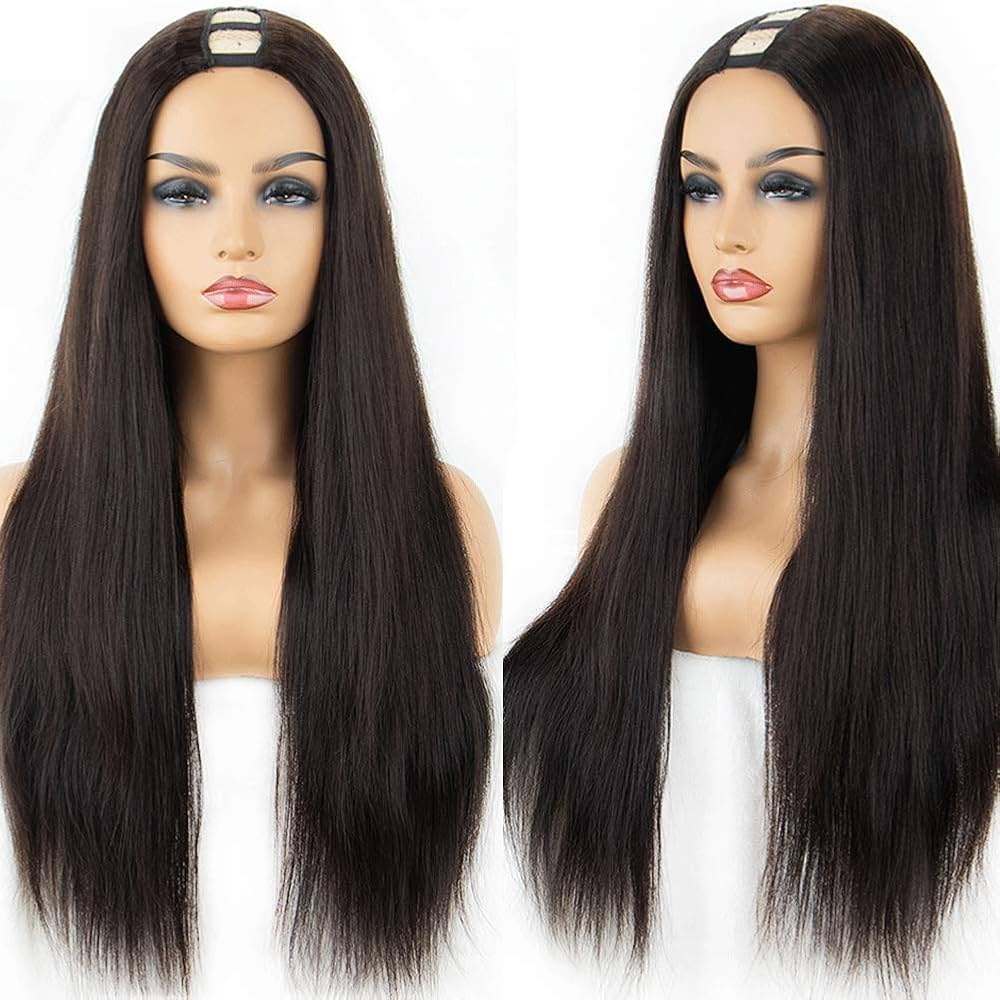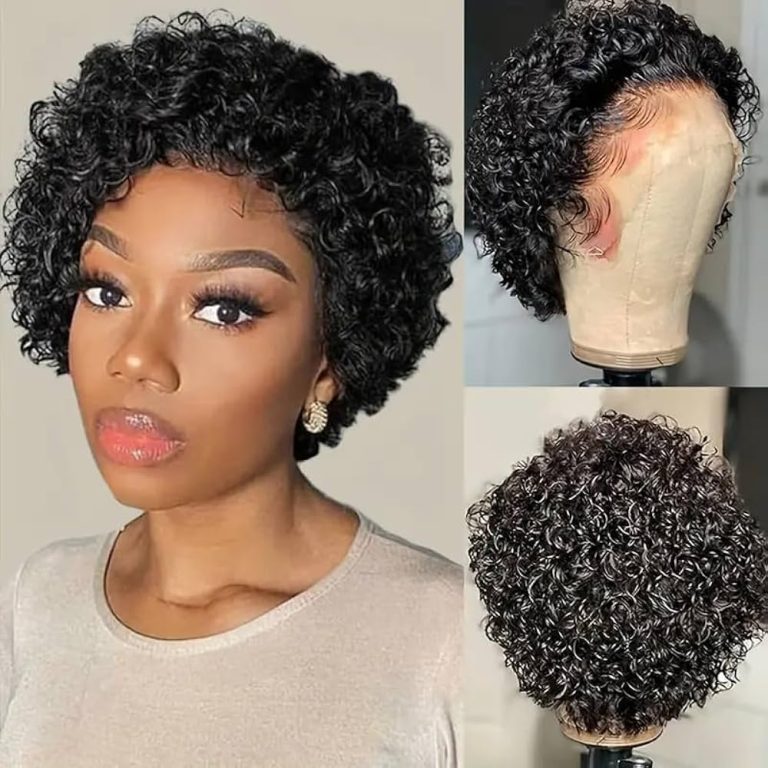
How to Wash a Synthetic Wig
How to Wash a Synthetic Wig
Washing a synthetic wig can seem daunting, but it is quite manageable. With proper techniques, anyone can maintain their wig’s beauty. Regular washing keeps the wig looking fresh and helps it last longer. How to wash synthetic wig? Therefore, following a systematic approach ensures beauty and longevity.
How to Wash a Synthetic Wig: A Step-by-Step Guide to Keeping Your Style Fresh
Synthetic wigs can be a fantastic way to change your look without the commitment of a haircut or dying your natural hair. They allow you to experiment with colors, lengths, and styles, giving you the freedom to express your individuality. However, just like your natural hair, synthetic wigs require proper care to maintain their beauty and longevity. One of the most crucial elements of wig maintenance is washing it correctly.
Washing a synthetic wig might seem straightforward, yet improper techniques can lead to tangling, loss of shape, or damage to fibers. Whether you’re a seasoned wig wearer or new to the world of synthetic hair, knowing how to wash your wig properly is essential for preserving its luster and extending its lifespan.
In this blog, we’ll walk you through the entire washing process with a focus on using products that cater specifically to synthetic fibers. You’ll learn how to prepare your wig for washing, which cleaners to choose, and how to dry your wig without damaging its style. We will also offer tips on frequency and maintenance routines to follow between washings, ensuring your wig always looks fresh and fabulous.
Say goodbye to those days of dull, lackluster wigs. With our comprehensive guide, you’ll be equipped with the knowledge and confidence to keep your synthetic wig in top-notch condition. Let’s dive in and discover how simple, effective, and enjoyable wig maintenance can be!

Gather Necessary Supplies
Before starting the washing process, gather all necessary supplies. This includes a wide-tooth comb, wig shampoo, wig conditioner, a bowl of cool water, and towels. A wig stand also proves useful for drying afterward. If available, use a wig cap to keep your own hair secured. Ensure all products are specifically designed for synthetic wigs. Regular hair products can damage synthetic fibers. Always check the labels before using any product.
Additionally, having a clean workspace helps streamline the process. Choose a flat, dry surface with sufficient space. A bathroom countertop or table works well. Make sure you have enough light to see every detail of the wig. The cleaning process becomes easier with a good setup. Proper tools and environment create a pleasant washing experience.
Detangle the Wig
Detangling the wig is one of the essential first steps. Proper detangling reduces stress on the fibers during washing. Start by placing the wig on a wig stand for stability. Use the wide-tooth comb to gently work through any knots. Always begin from the ends and gradually move toward the roots. This technique prevents damage to the synthetic fibers.
Be patient while detangling; rushing may cause breakage. Often, synthetic wigs tangle more than natural hair. Therefore, taking time during this step is crucial. If the wig is particularly tangled, consider using a light leave-in conditioner. This adds some slip and makes detangling easier. Avoid using excessive force; gentle, consistent strokes make a significant difference.
Transitioning to the washing phase is essential once the wig is tangle-free. An effective wash begins only after proper detangling. This step ensures a thorough clean, removing dirt and debris.

Fill a Bowl with Cool Water
Filling a bowl with cool water is the next step in the process. Cool water helps maintain the integrity of synthetic fibers. Hot water can damage or change the texture, so always opt for cool. A bowl is ideal because it allows full submersion of the wig. Make sure the bowl is large enough to accommodate the wig without overcrowding.
Once filled, add a small amount of wig shampoo to the water. Avoid using regular shampoo, as it may strip the fibers. Stir the water gently to dissolve the shampoo. This mixture creates a cleansing solution that will effectively remove dirt and oil. Proper preparation is vital for washing the wig effectively.
Transitioning to washing begins once the cleaning solution is ready. Place the wig gently into the bowl. Ensure it is fully submerged to promote even cleaning.
Wash the Wig Gently
Washing the wig gently is essential for maintaining its structure. Submerge the wig in the soapy water and let it soak for a few minutes. This soaking allows the shampoo to lift dirt and oil away from the fibers. After soaking, gently swish the wig in the water. Avoid scrubbing or twisting, as this may cause damage.
Using your fingers, lightly run through the fibers. Focus on areas that typically collect product buildup and dirt. Be cautious around knots and tangles; gentle handling prevents further matting.
After a few minutes of gentle washing, it’s time to rinse. Lift the wig out of the bowl and place it under cool running water. Rinsing should remove all shampoo and leave the wig clean. Ensure that the water runs clear before proceeding to the next step.

Condition the Wig
Conditioning the wig is an often-overlooked but vital step. After rinsing out the shampoo, apply a synthetic wig conditioner. Follow the product’s specific instructions for best results. Apply the conditioner evenly, ensuring every section of the fibers receives treatment.
Focusing on the ends of the wig is crucial, as they tend to be more prone to dryness. Allow the conditioner to sit for a few minutes. This step helps restore moisture and keeps the wig looking radiant.
After the conditioning period, rinse thoroughly with cool water. Ensure that no product residue remains in the fibers. Proper rinsing ensures the wig maintains its texture and shine.
Transitioning to drying the wig requires careful handling. The right drying technique preserves the wig’s shape and style.
Drying the Wig
Drying the wig properly prevents damage and maintains its appearance. Gently squeeze out excess water without twisting or pulling on the fibers. Blot the wig with a clean towel to absorb additional moisture. Avoid rubbing, as this causes frizz and tangling.
After blotted, place the wig on a wig stand. This allows it to air dry naturally in its original shape. Ensure it is away from direct sunlight, which can fade colors and damage fibers. If necessary, reshape the wig while it is drying.
Do not use hair dryers or heat sources on synthetic wigs. Heat can cause irreversible damage and alter the style. Patience is essential during the drying process. Air drying can take several hours, depending on the thickness of the wig.
Transitioning from drying to styling is a natural progress after the wig has dried completely.
Styling the Wig
Once the wig is dry, it is time to style it as desired. Use a wide-tooth comb or fingers to gently fluff and arrange the fibers. Be cautious not to pull too hard to avoid creating tangles.
Synthetic wigs often have set styles, but some can handle light heat styling tools. Always check the manufacturer’s guidelines about heat settings first. Low-heat tools designed specifically for synthetic wigs work best.
Choose styles that complement your look and fit the occasion. Experimenting with parting, curls, or waves can enhance its attractiveness. Clip-ins and accessories may also add personal flair.
Transitioning to long-term care and maintenance maintains the wig’s beauty. Proper care ensures the wig remains a staple in one’s wardrobe.

Long-Term Care and Maintenance
Long-term care and maintenance play critical roles in preserving a synthetic wig. Regular cleaning enhances longevity and appearance. Depending on how often the wig is worn, washing it every 6 to 8 wears is advisable.
When storing the wig, place it on a wig stand to maintain its shape. Avoid folding or crushing the wig, as this leads to permanent creases or curls. If time allows, covering the wig with a silk or satin cloth protects it from dust and tangling.
Avoid using products containing alcohol or strong chemicals, as they can degrade fibers. Use products specifically designed for synthetic wigs, ensuring the best care. Regularly detangling and gently brushing the wig further prolongs its life.
Finally, remember that proper care will always make a difference. With consistent maintenance, a synthetic wig can look incredible for a long time.
Conclusion
Understanding how to wash and care for a synthetic wig is essential for its longevity and appearance. Taking the time to gather supplies and follow each step ensures thorough cleaning and maintenance. This process not only preserves the wig but enhances confidence in its usage.
By implementing these practices, every synthetic wig wearer can enjoy a fresh, beautiful look. From detangling to styling, each step plays a vital role. Regular upkeep fosters a lasting relationship with this versatile accessory. Well-cared-for wigs add flair and complement personal style.
With diligent effort and proper techniques, the process becomes quick and rewarding. Enjoy the endless possibilities and fun that come with wearing synthetic wigs. The opportunity to express oneself through various styles is limitless.

